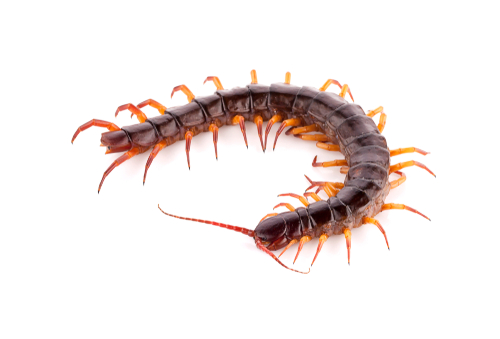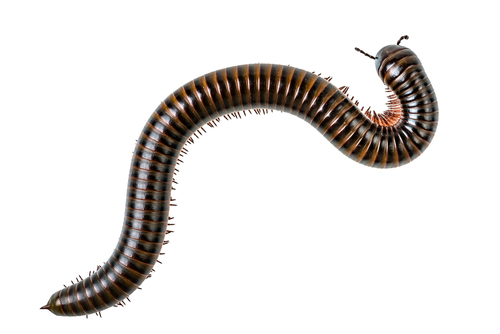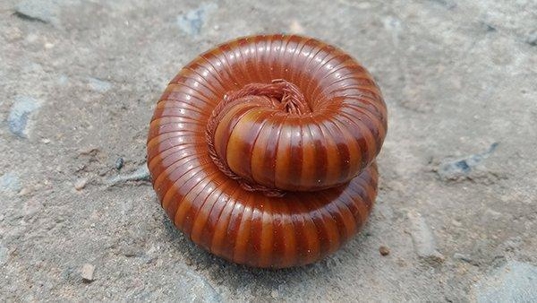Centipedes and millipedes always give a shock to Fort Worth, TX residents. Fort Worth homeowners would do well to avoid these unsightly pests, but unfortunately, they are not always easy to remove – or to identify. To learn more about these many-legged critters, let’s talk about what attracts centipedes and millipedes to your Fort Worth home, how to identify centipedes versus millipedes, and what you can do to prevent them both.
Centipede vs Millipede: Identification Guide
Even for insects, centipedes and millipedes are pretty freaky. Although they look similar, they aren’t that closely related, despite having similar attractions to your home.
Both centipedes and millipedes have long, sectioned bodies, with a pair of legs supporting each section. Both insects have tubular bodies and a pair of antennae, and they tend to crowd around dark, moist spaces.
However, the two insects aren’t identical. You can tell which pest you’re dealing with based on two things: their leg shape and their behaviors. Centipedes have long, bent legs that jut out from their bodies. Millipedes, by contrast, have thin legs that are directly underneath their bodies.
Additionally, centipedes tend to scurry away, and these pests are fast and aggressive compared to the more timid millipede. Millipedes, when under threat, will roll up into a defensive ball, relying on their tough exterior to stay safe.
You might think you can count the legs to determine the pest, but the leg count for these pests overlaps. Centipedes have anywhere from 30-354 legs; millipedes, by contrast, have between 24-750. Clearly, there’s a lot of overlap, and these pests move too fast to count their legs anyway. Rather, look at their leg position and how they respond to your presence nearby.
In summation, this is a centipede:

And this is a millipede:

Problems Caused By Centipedes & Millipedes
Despite being monstrous insects, these centipedes and millipedes are not dangerous. They are mostly nuisance pests, meaning they cause discomfort but will not harm your home or health. Still, some homeowners can be psychologically disturbed by a large amount of centipede or millipede problems, so it is best to avoid them.
Centipedes are both carnivorous and venomous and feed on other insects. However, don’t let those words scare you – a centipede’s venom will not harm you. Millipedes don’t cause health issues either, although coming into contact with them can leave a mild rash on the skin.
Additionally, millipedes can be smelly, emitting an odorous fluid that can irritate the eyes and nose. Finally, millipedes can cause damage to your garden and plant life, chewing through flowers and laying eggs under leaves.
While all of these behaviors can be problematic, they are not dangerous. Nonetheless, prevention is key for pests as unsightly as these. Here’s what Fort Worth homeowners can do to keep centipedes and millipedes out.
Centipede & Millipede Prevention Tips
There are a few things that make your home attractive to these pests, and by implementing the following pest control strategies, you can keep these insects out.
- Seal the area around your home. This includes cracks in your door frames, windows, vents, pipes, and the chimney.
- Remove natural hiding spots around the yard. Wood piles, gravel, and compost all provide dark, moist spaces for these pests to hide.
- Keep plant life away from your home. Millipedes and centipedes both crowd near plants in search of food, then move indoors after a storm or cold weather.
- Make sure you don’t have any other infestations in your home. Since centipedes feed on other insects, their presence indoors may be a sign of another pest problem.
If these pests still make their way indoors, or if you discover a different pest infestation while trying to clear centipedes and millipedes, contact Fort Worth’s top exterminators at All-Safe Pest & Termite, and we’ll treat your property to keep these monstrous pests away.

